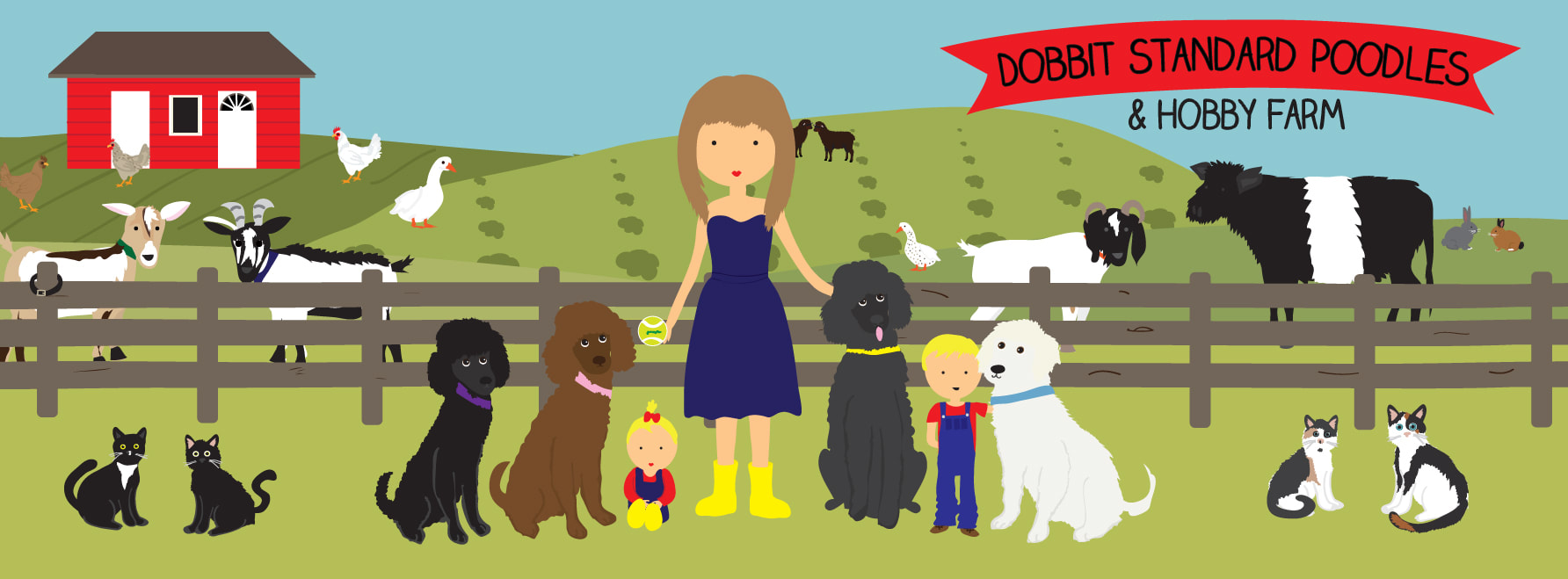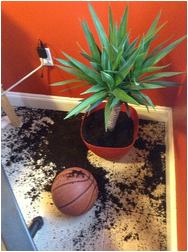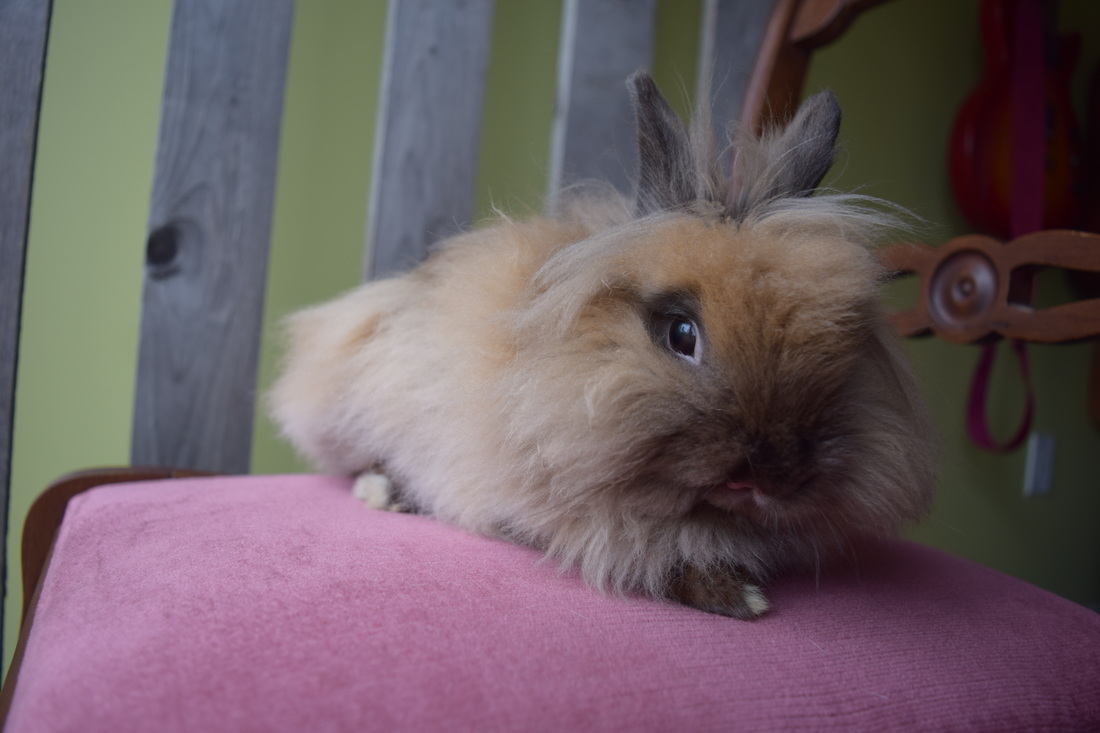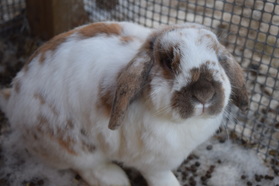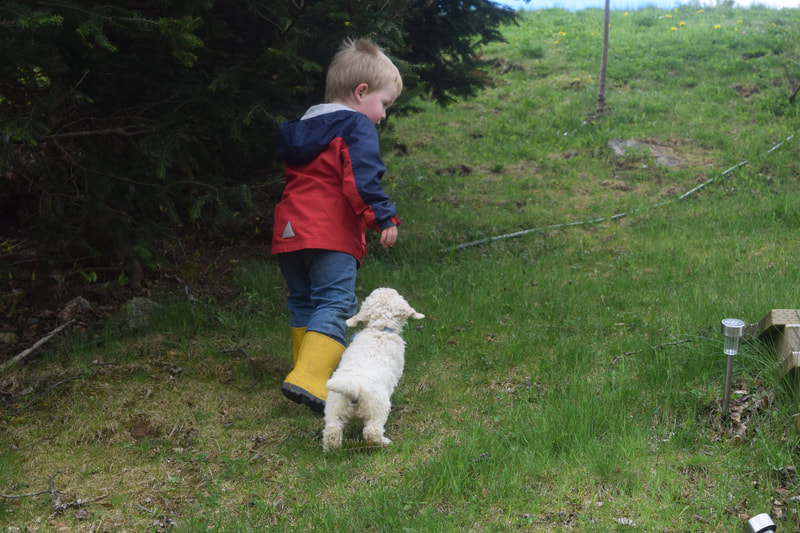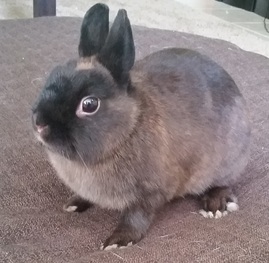Rabbit Care
Here are some tips and tricks that might help you care for your rabbit that have worked well for us!
Food
We fee our rabbits a combination of different things including...
-Rabbit Pellets
-Alfalfa or Timothy Hay
-Fresh fruits and veggies
-Treats (yoghurt drops & honey sticks)
-Alfalfa or Timothy Chews
-Goat mash as a treat (it has lots of yummy grains)
We buy our pellets, hay, and chews at a Walkers livestock feed store for a great deal! We highly recommend them because pet stores over charge for these products. If you're looking for treats for your rabbit I would check out a pet store or even Walmart. Sometimes fresh fruit and veggies are just as good to a rabbit then a packaged treat, and much healthier too! Sometimes rabbits like a salt lick treat that you can get a pet stores, especially if your rabbit likes to chew! Every rabbit is different and some can be picky about what they like, just like people. Try changing things is your rabbit doesn't like a particular food or treat. Don't forget to give your bunny fresh food, water and attention daily!
-Rabbit Pellets
-Alfalfa or Timothy Hay
-Fresh fruits and veggies
-Treats (yoghurt drops & honey sticks)
-Alfalfa or Timothy Chews
-Goat mash as a treat (it has lots of yummy grains)
We buy our pellets, hay, and chews at a Walkers livestock feed store for a great deal! We highly recommend them because pet stores over charge for these products. If you're looking for treats for your rabbit I would check out a pet store or even Walmart. Sometimes fresh fruit and veggies are just as good to a rabbit then a packaged treat, and much healthier too! Sometimes rabbits like a salt lick treat that you can get a pet stores, especially if your rabbit likes to chew! Every rabbit is different and some can be picky about what they like, just like people. Try changing things is your rabbit doesn't like a particular food or treat. Don't forget to give your bunny fresh food, water and attention daily!
Housing
Our rabbits live in the barn with an indoor and outdoor place for them to hop around.
Where your bunny lives is up to you. Some people keep their bunnies outside in a hutch, or a barn, and some inside their home in a cage, or run free in the house. Your bunny will be happy where ever you decide to keep him/her as long as it has a safe and warm place to live.
Where your bunny lives is up to you. Some people keep their bunnies outside in a hutch, or a barn, and some inside their home in a cage, or run free in the house. Your bunny will be happy where ever you decide to keep him/her as long as it has a safe and warm place to live.

Housing inside:
This is the easiest option. You can build a hutch or buy a large cage from the pet store. This makes it easy to access your bunny to play with him/her. You know your bunny is always safe and warm. Just remember if you forget to change the shavings or litter box it can get smelly. Always make sure they have a clean cage! Your bunny will like this option because they will get to spend lots of time with you.
This is the easiest option. You can build a hutch or buy a large cage from the pet store. This makes it easy to access your bunny to play with him/her. You know your bunny is always safe and warm. Just remember if you forget to change the shavings or litter box it can get smelly. Always make sure they have a clean cage! Your bunny will like this option because they will get to spend lots of time with you.
|
Running free inside:
This is one of the best ways to house your rabbit but there are lots of options you need to consider. Remember, bunnies likes to chew and if you have any electrical wires exposed the bunny could hurt its self and also ruin expensive appliances. If your bunny is litter trained it could be very enjoyable to have him/her running free in your home, and your bunny will absolutely LOVE it! This is the best way to house a bunny if you want it to be social! |
|
Housing outside:
Things you need to consider when leaving your bunny outside is the weather, predators, and shelter. Make sure your cage is strong enough and off the ground so that predators like raccoons, weasels and other wild animals cannot break in and get to your bunny. Make sure your bunny has a warm place to shelter from wind and rain. We recommend putting any type of shingles on an outdoor hutch. Also, ensure there is proper ventilation and a good place to hide or nest. We don't recommend letting your bunny run free outside because it would be very hard to catch. Housing outside is a great way for your bunny to enjoy fresh air and nature, but make sure you don't forget about him/her out there because they will get lonely too! |
Bedding & Litter
We prefer not to use shavings in our rabbits hutch (unless it's REALLY wet outside) because it's irritating to their skin, eyes and lungs. Hay is great as bedding because it keeps them warm but also is good to eat. A lot of people will buy small pet blankets from the dollar store and hand towels to keep them warm (easy to clean too once they are litter trained).
Our rabbits used to be litter trained, but now with the barn it's easier for them to pee and poo outside. It's very easy to do and so much easier to clean if you keep your bunny in a cage! We bought a kitty litter box (the corner ones are a little small for their big bums) and stuck it in the corner that they usually pee in. Within a few days they are using it. Sometimes its helpful so spread a little cat litter deodorizer on the bottom on the litter box to make them smell good! The best litter to use is Yesterdays News by Purina (because some rabbits will eat kitty litter). Its the best stuff for rabbits and also compostable. You can buy it at the grocery store or Walmart.
Our rabbits used to be litter trained, but now with the barn it's easier for them to pee and poo outside. It's very easy to do and so much easier to clean if you keep your bunny in a cage! We bought a kitty litter box (the corner ones are a little small for their big bums) and stuck it in the corner that they usually pee in. Within a few days they are using it. Sometimes its helpful so spread a little cat litter deodorizer on the bottom on the litter box to make them smell good! The best litter to use is Yesterdays News by Purina (because some rabbits will eat kitty litter). Its the best stuff for rabbits and also compostable. You can buy it at the grocery store or Walmart.
Male VS Female
When trying to decided to get a male or female bunny usually people lean towards getting a female. What most people don't know is that a male rabbit tends to be more friendly then a female. This is not always the case because every rabbit is different, but most of the time it is true. It is this way because most females, especially unspayed, are very hormonal. They can reproduce so quickly that the females hormones are just always flowing and so they tend to be a little more snippy. Personally, I prefer males because I find they are more cuddly, friendly and have more energy, but the choice is up to you! Female rabbits also make great pets as long as they are well socialized!
Spaying & Neutering
If you choose to spay or neuter your rabbit you must remember that it is a high risk surgery and there is a high chance your rabbit may not survive. It is best to wait until your rabbit is at least 6 months old or older before going ahead with this procedure.
A females spay is much more invasive and complicated than neutering a male. Usually when you neuter a male they simply do a "vasectomy" type procedure, where as a female needs to be opened and expose much more. Spaying is more expensive than neutering.
If you decide to go ahead with this procedure, remember it will make for a better behaved bunny. Also, we found the urine not to have as strong of a smell a few weeks after the neuter. It will also stop male rabbits from spraying.
Our personal experience with a neuter
We have successively neutered one of our males, Bugs, and he did great with surgery. He is over 2 years old and quite large in size. He didn't require any stitches and was healed in just over a week. We dropped him off at 8 am and he was done surgery by 12 pm. We then picked him up on our way home from work at 4:30 pm. Other then being a little sleepy he didn't seem to be in any discomfort. He stopped spraying and humping after a few weeks and now he gets along with everyone!
A females spay is much more invasive and complicated than neutering a male. Usually when you neuter a male they simply do a "vasectomy" type procedure, where as a female needs to be opened and expose much more. Spaying is more expensive than neutering.
If you decide to go ahead with this procedure, remember it will make for a better behaved bunny. Also, we found the urine not to have as strong of a smell a few weeks after the neuter. It will also stop male rabbits from spraying.
Our personal experience with a neuter
We have successively neutered one of our males, Bugs, and he did great with surgery. He is over 2 years old and quite large in size. He didn't require any stitches and was healed in just over a week. We dropped him off at 8 am and he was done surgery by 12 pm. We then picked him up on our way home from work at 4:30 pm. Other then being a little sleepy he didn't seem to be in any discomfort. He stopped spraying and humping after a few weeks and now he gets along with everyone!
Breeds Of Rabbits
Just like dogs and cats there are many different breeds of rabbits. And I'm talking like 48+ types of breeds all over the world. Many breeds are not recognized in Canada or the US, and of course there are cross over breeds, wild breeds, different colors, sizes and fur patterns which categorize them as different breeds. To make things less complicated I'll give you the most common top 10 breeds that are probably most familiar to you.
1. Rex or Mini-Rex
2. Netherland Dwarf *
3. Holland Lop or Mini Lop *
4. Lionhead *
5. Havana
6. Jersey Wooly
7. Hotot*
8. Angora
9. Dutch
10. New Zealand
Out of these rabbits we own 4 of the different breeds. Here is a little more information on the breed of our rabbits.
1. Rex or Mini-Rex
2. Netherland Dwarf *
3. Holland Lop or Mini Lop *
4. Lionhead *
5. Havana
6. Jersey Wooly
7. Hotot*
8. Angora
9. Dutch
10. New Zealand
Out of these rabbits we own 4 of the different breeds. Here is a little more information on the breed of our rabbits.
Did You Know?
Bunnies like to go for walks too?! You can buy a variety of sized harnesses for your rabbit at the pet store. At first he/she may be a little scared, but once they get used to hopping around in the grass they will love that time spent with you and the exercise that comes with it!
It's also good to know that some bunnies, especially males, spray. Our rabbits don't do this very often but occasionally if they get territorial and excited they may do this. You can prevent this from happening by spaying or neutering your rabbit at your local vet!
It's also good to know that some bunnies, especially males, spray. Our rabbits don't do this very often but occasionally if they get territorial and excited they may do this. You can prevent this from happening by spaying or neutering your rabbit at your local vet!
Commonly Asked Questions
Q: "Can your bunnies be handled by kids?"
A: YES! All of our bunnies are very friendly with strangers and children. If you have your rabbit from a young age, you can teach it to be friendly by handling it often and giving him/her lots of attention. If you neglect your bunny and don't give him/her attention it will be more aggressive and/or scared of you.
Q: "Do the cages smell?"
A: Yes and no, if you clean the cage regularly the cage should not smell. When it starts to smell that's usually a sign the cage needs to be cleaned. If you notice an odor you can buy litter deodorizer and sprinkle it in the cage which will help. Litter training will make cleaning easier and help with any unwanted smells.
Q: "How big will the bunnies get?"
A: It depends on the breed. Some breeds of bunnies can grow very big and some stay very small. It is best to research the breed of bunny you are buying before you buy him/her. Most of our bunnies are between 2-6 lbs.
Q: "Are they hard to litter train?"
A: No, a happy bunny will usually catch on very fast if you put the litter box in the corner that they usually pee in. BUT, if the litter box gets full and needs to be changed they will find a new spot to pee and poop, usually in front of the litter box or a different corner. If you are struggling with training them try to feed them their meals in the litter box.
Q: "Are bunnies expensive to care for?"
A: No. The initial cost of all the supplies can be pricey but after that the cost of food and litter is very manageable for an average household.
A: YES! All of our bunnies are very friendly with strangers and children. If you have your rabbit from a young age, you can teach it to be friendly by handling it often and giving him/her lots of attention. If you neglect your bunny and don't give him/her attention it will be more aggressive and/or scared of you.
Q: "Do the cages smell?"
A: Yes and no, if you clean the cage regularly the cage should not smell. When it starts to smell that's usually a sign the cage needs to be cleaned. If you notice an odor you can buy litter deodorizer and sprinkle it in the cage which will help. Litter training will make cleaning easier and help with any unwanted smells.
Q: "How big will the bunnies get?"
A: It depends on the breed. Some breeds of bunnies can grow very big and some stay very small. It is best to research the breed of bunny you are buying before you buy him/her. Most of our bunnies are between 2-6 lbs.
Q: "Are they hard to litter train?"
A: No, a happy bunny will usually catch on very fast if you put the litter box in the corner that they usually pee in. BUT, if the litter box gets full and needs to be changed they will find a new spot to pee and poop, usually in front of the litter box or a different corner. If you are struggling with training them try to feed them their meals in the litter box.
Q: "Are bunnies expensive to care for?"
A: No. The initial cost of all the supplies can be pricey but after that the cost of food and litter is very manageable for an average household.
